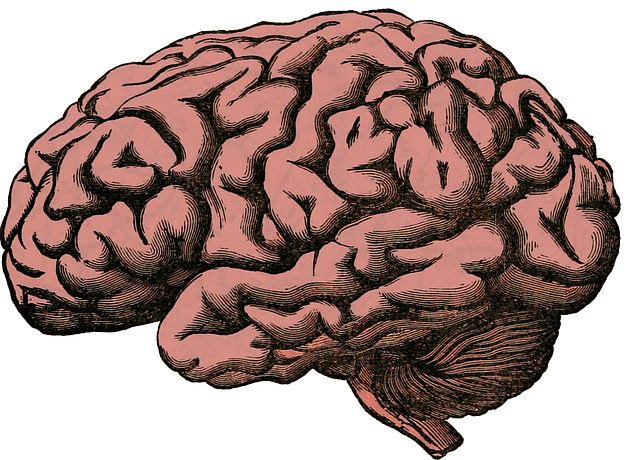Diagnosing mental illnesses accurately is challenging due to complex symptoms, cultural differences, and physical health overlaps. Therapy for Family Counseling improves diagnosis by fostering open communication, understanding unique cultural contexts, and tailoring mood management strategies. This approach, coupled with Burnout Prevention Strategies and Mental Wellness Podcast Series, strengthens support systems and enhances holistic mental health care. Prioritizing cultural sensitivity, inclusive practices, and diverse training ensures respectful, effective care tailored to individual needs, including therapy for family counseling.
Mental illness diagnosis accuracy is a critical aspect of patient care, with significant implications for treatment outcomes. This article explores efforts to enhance diagnostic precision, focusing on understanding the complexities of mental health assessment. We delve into the importance of family counseling as a powerful tool for accurate diagnosis, discussing its therapeutic benefits. Additionally, innovative therapies and cultural sensitivity practices are highlighted, emphasizing their role in improving mental illness diagnosis accuracy and ensuring inclusive healthcare.
- Understanding the Challenges of Mental Illness Diagnosis
- The Role of Family Counseling in Enhancing Accuracy
- Innovative Therapies and Techniques for Improvement
- Ensuring Cultural Sensitivity and Inclusive Practice
Understanding the Challenges of Mental Illness Diagnosis

Diagnosing mental illnesses accurately is a complex task due to the multifaceted nature of human behavior and emotions. The process involves sifting through intricate symptoms, which can often be vague or even overlooked, especially when presenting alongside other health issues or life stressors. Many mental health conditions share similar manifestations, adding another layer of complexity. This challenge is further exacerbated by the diverse range of cultural backgrounds patients come from, each carrying unique perceptions and expressions of distress.
For instance, what constitutes as ‘anxiety’ in one culture might differ significantly from another, impacting how symptoms are described during counseling sessions. Incorporating cultural sensitivity into mental healthcare practice is essential to ensure accurate diagnosis. Therapy for family counseling can play a pivotal role here, providing a safe space for patients and their families to share experiences and insights shaped by their cultural contexts. Understanding these nuances allows healthcare professionals to tailor their approach, improving the overall effectiveness of mood management strategies and risk management planning.
The Role of Family Counseling in Enhancing Accuracy

Family counseling plays a pivotal role in enhancing mental illness diagnosis accuracy by providing a holistic view of an individual’s life and interactions. This type of therapy fosters open communication among family members, allowing for a deeper understanding of symptoms and their impact on relationships. Through structured sessions, families learn to identify behavioral patterns, recognize triggers, and develop effective coping strategies. Such interventions are crucial in reducing the stigma associated with mental illness, which is often a significant barrier to accurate diagnosis and treatment.
Incorporating family counseling into diagnostic processes also aids in burnout prevention for healthcare professionals. By involving close relatives, counselors can gather valuable insights that may not be apparent during individual therapy sessions. This collaborative approach promotes emotional well-being promotion techniques tailored to the unique dynamics of each family, ultimately improving the overall accuracy and effectiveness of mental health diagnoses.
Innovative Therapies and Techniques for Improvement

In the realm of mental health, innovative therapies and techniques are revolutionizing diagnosis accuracy and treatment approaches. One such game-changer is Family Counseling, which has proven to be effective in addressing complex issues rooted in interpersonal dynamics. By incorporating this therapy for family counseling, healthcare providers can navigate intricate relationships and gain deeper insights into a patient’s mental wellness. This collaborative approach not only benefits individuals but also strengthens the support systems around them.
Additionally, healthcare professionals are leveraging Burnout Prevention Strategies to enhance their practice. These strategies emphasize self-care and resilience, ensuring that providers remain adept at diagnosing and managing mental health conditions. The Mental Wellness Podcast Series Production has also played a pivotal role in disseminating knowledge and fostering cultural sensitivity in mental healthcare practice. This multimedia approach caters to diverse learning styles, making it easier for practitioners to stay updated with the latest research and best practices.
Ensuring Cultural Sensitivity and Inclusive Practice

In the pursuit of enhancing mental illness diagnosis accuracy, it’s imperative to prioritize cultural sensitivity and inclusive practices within healthcare settings. This involves ensuring that therapists and counselors are trained in diverse cultural competencies, enabling them to understand and appreciate the unique perspectives and experiences of clients from various ethnic, racial, and socioeconomic backgrounds. Incorporating family counseling therapy can be particularly effective, as it considers the intergenerational impact of mental health issues and the systemic dynamics within families, fostering a more nuanced understanding of an individual’s mental health struggles.
The design of mental health education programs should emphasize these cultural sensitivity aspects, along with risk assessment strategies for professionals to identify potential biases or barriers in diagnosis. Public awareness campaigns can also play a pivotal role by promoting accurate representations of mental illness across different communities, challenging stigma, and encouraging individuals to seek support without fear of judgment or misdiagnosis. These efforts collectively contribute to creating an environment where everyone receives appropriate, respectful, and effective care tailored to their cultural needs.
Mental illness diagnosis accuracy has long presented significant challenges, but through innovative approaches like family counseling, cultural sensitivity, and advanced therapies, we’re closer than ever to improvements. By integrating these strategies, healthcare professionals can enhance understanding, foster inclusive practices, and ultimately provide more effective treatment plans tailored to individual needs. This multi-faceted approach ensures that those facing mental health issues receive the comprehensive care they deserve.








